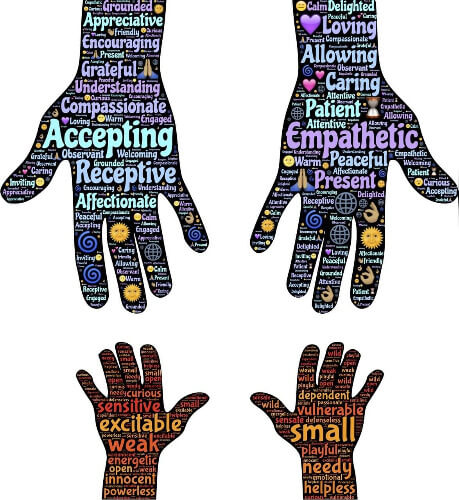Understanding Toxic Parenting and Its Impact
Not all parenting styles are beneficial, and some can be downright harmful, toxic parenting is one.
If you want to have a healthy relationship with your child it is important that you understand this style of parenting.
 Mom and 2 boys in hallway. Mom is yelling and pointing at the boys while they are leaning against the wall looking terrified.
Mom and 2 boys in hallway. Mom is yelling and pointing at the boys while they are leaning against the wall looking terrified.What is Toxic Parenting?
It’s the attitudes and behaviors of a parent who is emotionally harmful, neglectful, or abusive to their child.
The parent may have experienced unresolved personal issues, mental health problems, or simply a lack of awareness.
While many parents may have moments where they struggle, toxic parenting is characterized by consistent harmful actions that affect a child's development.
Signs of Toxic Parenting
Recognizing the signs of toxic parenting can be challenging, especially if it's the only parenting style a person has experienced.
However, there are certain behaviors are clear indicators:
Constant Criticism: A toxic parent often criticizes their child, making them feel worthless or never good enough.
Emotional Manipulation: Toxic parents may use guilt, fear, or other manipulative tactics to control their children. This can make the child feel trapped and powerless.
Neglect: Neglect isn't always physical; it can be emotional as well. A toxic parent may ignore their child's emotional needs, leaving them feeling unsupported and unloved.
 Young girl sitting in cafeteria at a table with her hands over her ears and looking extremely sad.
Young girl sitting in cafeteria at a table with her hands over her ears and looking extremely sad.Lack of Boundaries: A toxic parent may overstep boundaries, invading their child's privacy or making decisions that should be left to the child.
Unpredictable Behavior: Inconsistency in rules, punishments, and affection can create a chaotic environment, making it difficult for a child to feel secure.
The Long-Term Effect’s on Children
The impact can be long-lasting, effecting a child's mental and emotional health long into adulthood.
Low Self-Esteem: Children of toxic parents often struggle with self-worth. Leaving them feeling inadequate due to the lack of support and constant criticism.
Anxiety and Depression: The emotional turmoil caused by toxic parenting can contribute to anxiety and depression. Also, children may struggle with feelings of sadness, hopelessness, and fear.
Difficulty Forming Healthy Relationships: A child raised in a "toxic" environment may have trouble trusting others and forming healthy relationships.
They may either become overly dependent or completely detached from others.
Perfectionism: To gain approval or avoid criticism, children of toxic parents may develop perfectionist tendencies, leading them to experience burnout, stress or dissatisfaction.
Rebellion or Withdrawal: Some children may rebel against toxic parenting as a way to assert their independence, while others may withdraw, becoming emotionally distant and isolated.
How to Break the Cycle of Toxic Parenting
If you recognize any "toxic" behaviors in your parenting style, it's essential to take steps to break the cycle.
Here are some strategies to consider:
Self-Reflection: Acknowledge your behaviors and the impact they may have on your child. Reflecting on your actions is the first step toward change.
Seek Support: If you're struggling with unresolved issues or mental health challenges, seek professional help. You’ll get the tools to manage your emotions while improving your style of parenting.
 A very angry looking mom.
A very angry looking mom.Improve Communication: Open and honest communication with your child is vital. Listen to their needs and concerns without judgment, and express your feelings in a constructive manner.
Set Healthy Boundaries: Establish and respect boundaries within the family. Give your child space to make decisions and respect their privacy.
Be Consistent: Consistency in rules, discipline, and affection creates a stable environment for your child. Helping them feel more secure and understood.
How to Heal from Toxic Parenting
If you were raised by toxic parents, the effects might still linger in your adult life. Healing from toxic parenting is possible, but it requires time and effort.
Here are some steps to consider:
Acknowledge the Past: Understanding and accepting the impact of your upbringing is crucial. Whatever you experience in your past, it’s okay if you are feeling hurt, angry or sad.
Seek Therapy: A therapist can help you work through your emotions and develop healthy coping mechanisms.
Therapy can also assist in breaking patterns of behavior that may have carried over from your childhood.
Set Boundaries with Your Parents: If you continue to have a relationship with your parents, it's essential to set clear boundaries. Create some communication rules and limit other contact.
Support System: Surround yourself with supportive people who understand your experiences. A strong support system can provide the encouragement and validation you need to heal.
Practice Self-Care: Taking care of yourself is vital for healing.
Consider your emotional and mental well-being by engaging in mindfulness and activities that bring you joy whether they are physical or simply hobbies.
Creating a Positive Parenting Environment
Breaking free from toxic parenting requires a commitment to creating a positive environment for your children.
Here are some tips to help you foster a healthy and supportive atmosphere:
 A set of large hands and a set of small hand reaching towards each other. The hands have writing all over them. Grateful, loving, allowing, caring, patient.....
A set of large hands and a set of small hand reaching towards each other. The hands have writing all over them. Grateful, loving, allowing, caring, patient.....Show Unconditional Love: It doesn’t matter what mistakes your child has made or achievements they have succeeded in, you can always let them know that they are loved and valued.
Encourage Independence: When you allow your child to make their own decisions and learn from their mistakes you will be promoting confidence and self-reliance.
Promote Open Communication: Help your child to develop their problem-solving skills by creating a safe environment where they can feel comfortable expressing their thoughts and feelings.
Be a Role Model: Demonstrate the behavior you want to see in your child, showing them empathy, respect, and kindness in your interactions with others.
It’s never too late to make positive changes. When your trying to improve your parenting style you will need to be patient and self-compassionate.
Once you break the cycle of a toxic parent, you can create a loving environment that allows your child to thrive.




































New! Comments
Have your say about what you just read! Leave me a comment in the box below.